Tinea Versicolor
Understanding Tinea Versicolor
Tinea versicolor is not contagious and can be effectively treated with antifungal medications. Symptoms include mild itching, scaling, and noticeable changes in skin color.
Effective Tinea Versicolor Treatment at Riva Dermatology
Riva Dermatology offers targeted treatments for tinea versicolor, including topical and oral antifungal medications. Our dermatologists provide personalized care to restore your skin’s natural appearance.
Examples of Tinea Versicolor
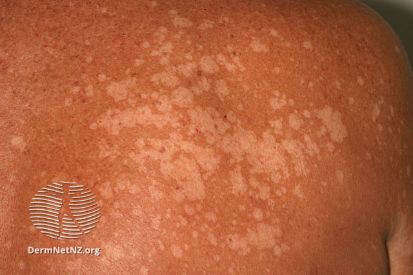
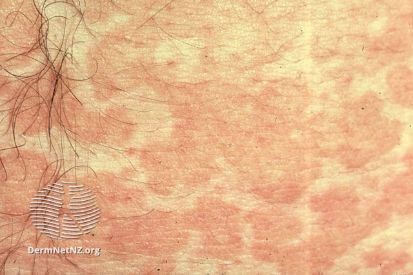
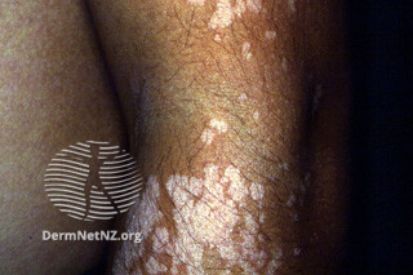
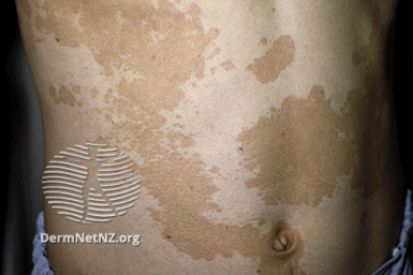
What are the Symptoms of Tinea Versicolor?
- Patches may be pink, tan, or brown.
- Can merge to form larger areas.
- Tinea versicolor is more noticeable after sun exposure because the fungus inhibits the normal tanning response.
What Causes Tinea Versicolor?
- Tinea versicolor is caused by an overgrowth of the yeast-like fungus Malassezia on the skin.
- The fungus disrupts normal pigmentation, leading to the development of discolored patches on the skin.
- Factors like heat, humidity, and oily skin can contribute to the overgrowth of Malassezia.
Prevention
Tinea Versicolor FAQs
Tinea versicolor is a fungal infection that causes small, discolored patches on the skin. These patches can be lighter or darker than the surrounding skin.
Tinea versicolor is caused by an overgrowth of yeast on the skin. Factors such as warm, humid weather, oily skin, and a weakened immune system can contribute to its development.
Treatment includes antifungal creams, lotions, or shampoos. In some cases, oral antifungal medications may be prescribed for more severe infections.
Preventive measures include keeping the skin dry and clean, avoiding excessive heat and humidity, and using antifungal products as recommended by a dermatologist.
Tinea versicolor is not considered highly contagious. It mainly affects individuals predisposed to the yeast overgrowth rather than spreading easily from person to person.
Treatment Options for Tinea Versicolor
Featured Products

iS Clinical Warming Honey Cleanser
This rich, luxurious treatment cleanser, formulated with pure Honey, Royal Jelly, and Propolis, imparts an extraordinary sensory experience while effectively cleansing and gently exfoliating the skin. It leaves skin ultra-hydrated and moisturized while helping to refine and balance problematic skin types. Warming Honey Cleanser has been specially formulated with Green Tea Extract and Papaya Enzymes to help nourish and boost exfoliation, leaving the skin looking and feeling velvety smooth. 120 g e Net wt. 4 oz.
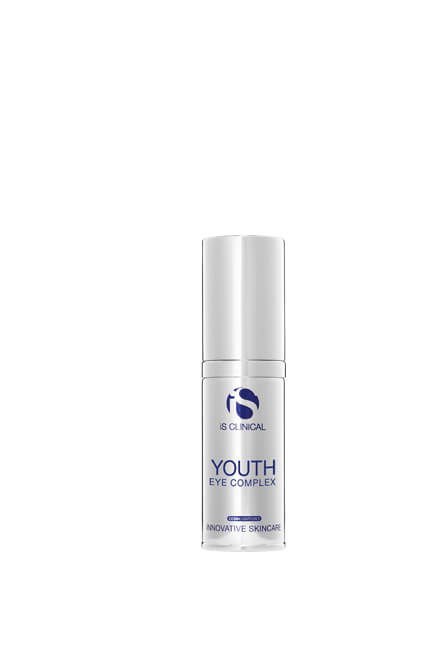
iS Clinical Youth Eye Complex
Youth Eye Complex is a breakthrough formula that utilizes advanced technologies to combat the visible signs of aging. This formula is clinically proven to target areas of concern and, as a result, skin looks stronger and more resilient. Powerful peptides, key growth factors, and potent antioxidants help reduce the appearance of wrinkles and visibly brighten the under-eye area to keep skin moist, smooth, and protected all day long. 15 g e Net wt. 0.5 oz.


